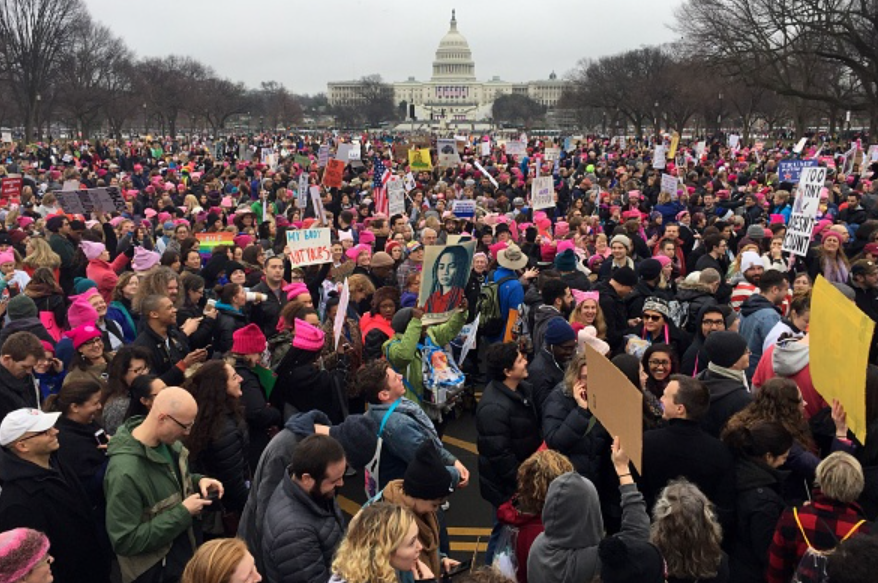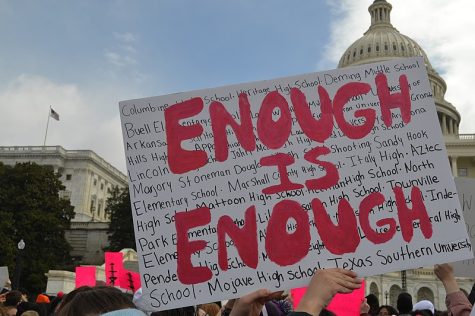Not all men, but too many women
This is an opinion article piece. Colleen McMenamin is a student at Mendham News. All opinions expressed in the following editorial are her own and do not necessarily reflect the views of The Patriot.
The statistic 97% has recently been used as a symbol for the ongoing conversation about discrimination and violence against women. The meaning behind this number is that 97% of women have experienced some sort of sexual harassment throughout their lives. Although this survey was taken in the UK and only asked women ages 18-24, it sparked conversations around the world, as the phrase “Not all men” and the hashtag #Notallmen began appearing as a response.
The #Notallmen hashtag is commonly used as an argument against the idea of generalized statements of harassment against women, by men. However, this hashtag, seemingly innocent, is extremely toxic to the social issue at hand. While this hashtag is simply stating a correct fact– yes, not all men harass women– it derails an important conversation and immediately invalidates it. Responses to generalized statements on sexual assault often lead to this type of response, so it’s not a false or unexpected response- it’s just not a helpful one, which I have seen in surplus recently.
The hashtag materialized after the 2014 Isla Vista Killings, where six people were murdered and fourteen injured. The killer, Elliot Roger, was motivated to kill women as a source of punishment for rejecting him and to kill sexually active men because he envied them. As this issue was hitting mainstream news media, it opened the conversation of misogynistic tendencies in society; as a defense to this blatant attack on equality and just basic human rights, it was pointed out that ‘not all men’ would commit such a crime. Then the hashtag was quickly brought to light, gaining traction all over Twitter. Although #Notallmen had been used in years prior, it gained immense popularity like never before.
Of course, not all men would even think to commit such crimes, so why is this simple hashtag so detrimental? First of all, this is already a known fact. The point of saying “all women” isn’t to blame all men for being rapists, assaulters, or just violent. Rather, it’s to point out that all women are affected by sexism in one way or another because it is built into our society and culture. And it is a rather obscure response, as the movement never claimed “all men”– not once. Secondly, the phrase is defending these societal sexist ideas. “Not all men” was created as a rebuttal to “all women”, so by nature is a defensive response to “all women”. When someone is defending an issue, they tend to not listen to the issue at hand and instead think of ways to defend themselves/invalidate the argument. Third, by saying this, these people are not furthering the conversation, they are just redirecting it. Choosing to look for invalidating responses rather than just listening, will not solve anything.
Because many people have rejected “Not all men”, ironically enough another hashtag was created in response to this one- #Yesallwomen. This was created to express that all women are affected by sexism and misogynistic ideas, regardless of what the men around them think/do. This hashtag quickly spread over social media and helped women share their experiences regarding this topic, and very successfully. This hashtag spread like wildfire- after only four days of the first use, it had been tweeted 1.2 million times. This outreach has helped women come together, lessening feelings of alienation, and simultaneously helping educate others on discrimination issues and sexual violence towards women.
Defending discrimination and violence towards women in society only silences innocent voices and change cannot come with silence. It’s not necessarily important to think it’s “Not all men”, because the concerning issue is that it’s too many women.
Colleen McMenamin is a senior at Mendham High School. Some of her hobbies include playing field hockey, reading, writing, and hanging out with friends....






